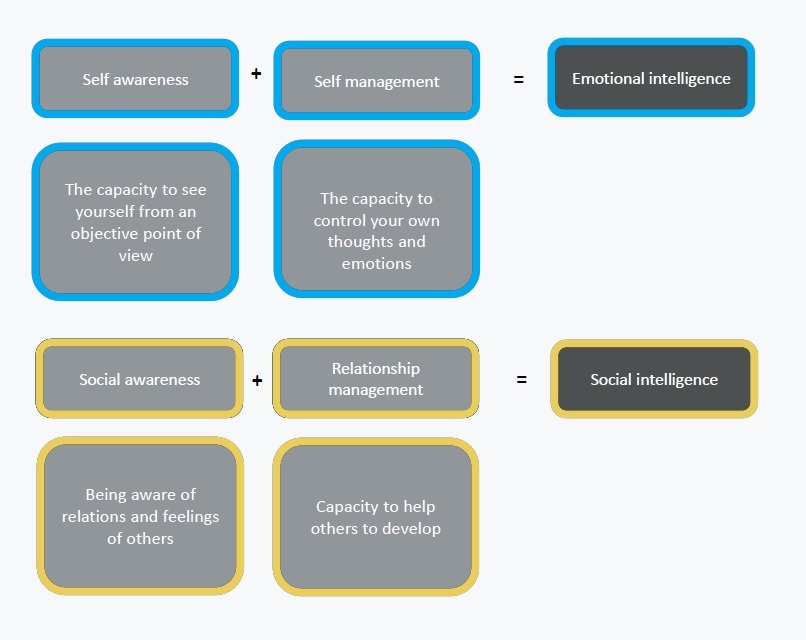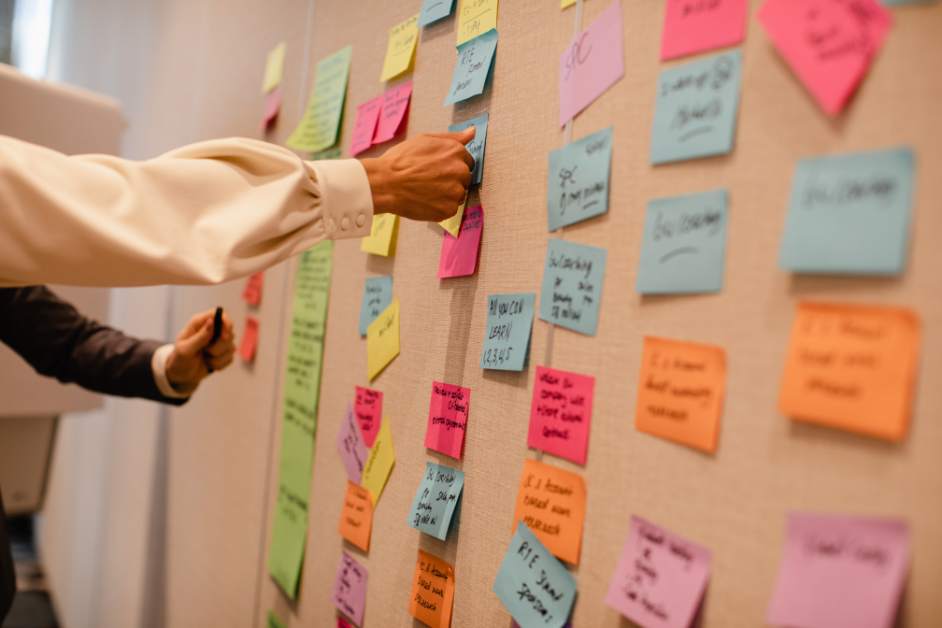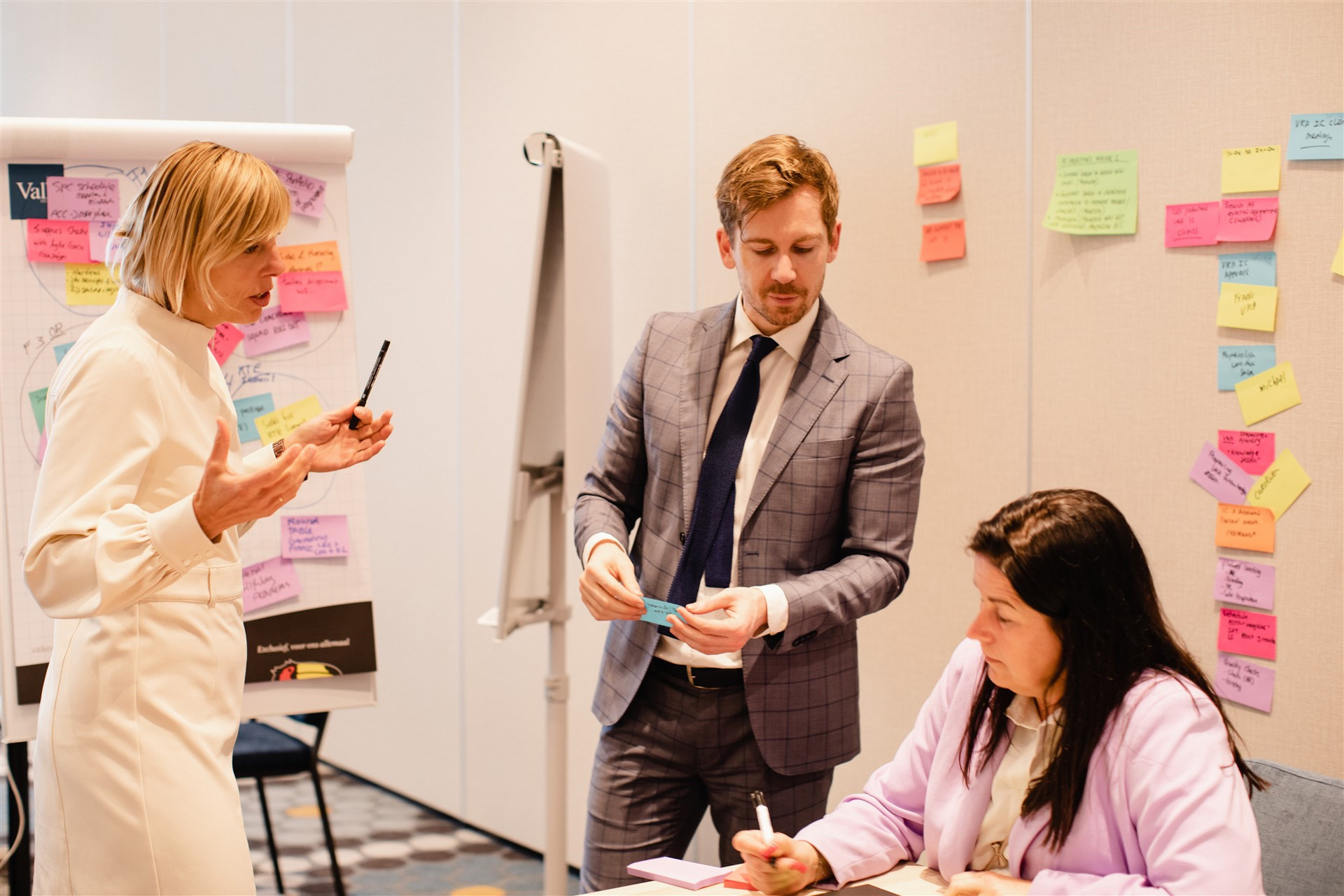World Mental Health Day: Nurturing Resilience
Nurturing Resilience: A Path to Thriving in Today's World
In an era of rapid change and unprecedented challenges, the ability of organizations to adapt and thrive has become paramount. The global landscape, marked by economic shifts, technological advancements, and unforeseen crises, demands a new level of resilience and agility. As companies navigate through these dynamic waters, the pursuit of strategies that bolster adaptability and preparedness has never been more critical.
This article serves as a guide for organizations seeking to thrive in the face of uncertainty. By delving into the foundational principles of (organizational) resilience as a consequence of an agile mindset, we aim to provide actionable insights for a sustainable future.
Understanding Resilience
Resilience is the inner strength that empowers individuals and social systems, such as organisations, to withstand and navigate through challenging situations and adapt to change. It goes beyond mere adaptability; it involves the capacity to bounce back, learn, and grow stronger from adversity. This robust quality not only benefits organizations but also plays a crucial role in promoting mental well-being among individuals. Fostering resilience equips individuals with the tools to effectively cope with stress, conquer challenges, and maintain a positive mental health trajectory.
Resilience is intricately linked with emotional & social intelligence, as well as psychological ownership and a growth mindset. As we discussed, in a previous blog article, these attributes are all aspects of an Agile Mindset and form the bedrock of an individual’s & organization's ability to navigate through tumultuous times.
Emotional & Social Intelligence
Resilience is closely intertwined with emotional intelligence (EI) & social intelligence (SI), forming a dynamic triad that empowers individuals to thrive amidst uncertainty. Emotional intelligence enables self-awareness, self-regulation, empathy, and effective relationship management. It provides the emotional groundwork necessary for resilience, allowing individuals to recognize and manage their emotions in high-stress situations. Similarly, social intelligence extends this acumen to the social sphere, encompassing skills like active listening, collaboration, and conflict resolution[1 & 2].
Leaders who exhibit high emotional intelligence are adept at recognizing and validating their team members' emotions, which fosters a culture of trust and psychological safety. Similarly, leaders with robust social intelligence excel in building strong interpersonal relationships, which are foundational for instilling a sense of ownership among employees[3].

Psychological Ownership
Psychological ownership is another pivotal aspect of nurturing resilience. It entails a deep-seated sense of true responsibility and stewardship towards one's work and organization[4]. When individuals feel a genuine stake in their roles and contributions, they exhibit heightened commitment and a proactive approach to problem-solving. This ownership mentality significantly bolsters resilience, as it fosters a mindset of personal investment in the organization's success, even in the face of challenges.
A resilient organization actively cultivates a culture of psychological ownership. This not only empowers individuals to take ownership of their roles but also fosters a collective responsibility for the organization‘s success. It creates a powerful sense of unity and purpose, which are indispensable elements of resilience.
Agile Mindset
A cornerstone of resilience lies in cultivating an agile mindset. This mindset encourages flexibility, adaptability, and a growth mindset – the willingness to learn from setbacks. For employees, it means embracing change as an opportunity for growth. For organizations, it translates into the ability to pivot swiftly in response to evolving circumstances.

Agile Coaching Professional Training
By immersing yourself in coaching and guiding Agile teams, educating team members and stakeholders, and advising management and executives, you will cultivate an Agile Mindset as an Agile Coaching Professional (ICP-ACC). Through this program, you will acquire the abilities to autonomously operate as a certified Agile coach.
The Resilience Imperative
In a world characterized by Volatility, Uncertainty, Complexity, and Ambiguity (VUCA), marked by rapid technological advancements and unpredictable global events, change is not a sporadic occurrence but a constant force. Resilience, then, is not an optional trait but an imperative one for individuals, teams, and organizations aiming to navigate change effectively. It's the cornerstone upon which organizational longevity is built.
The Evolution of Resilience in Modern Organizations
Proactive Adaptation: A Strategic Imperative
In the dynamic landscape of contemporary business, resilience has evolved from being a reactive quality to a proactive imperative. Thriving organizations no longer wait for crises to occur; instead, they anticipate and prepare for potential challenges. This shift towards proactive adaptation involves a strategic approach to risk assessment, scenario planning, and readiness building[5].
Proactive adaptation entails fostering a culture of continuous learning and development, where employees are encouraged to enhance their skills and knowledge to stay ahead of industry trends and disruptions[6]. By doing so, organizations not only bolster their capacity to respond effectively to unforeseen events but also position themselves as leaders in their respective domains.
Business Agility: Pivoting in a VUCA World
Our VUCA world demands a new level of organizational agility. Resilient organizations possess the capacity to pivot swiftly in response to shifting market conditions, emerging technologies, and evolving customer preferences. They do not view change as a threat, but rather as an opportunity for growth and innovation.
Business agility requires a combination of strategic foresight, nimble decision-making processes, and a culture that embraces experimentation and learning from failures. It enables organizations to navigate through uncertainty with confidence, seizing emergent opportunities and mitigating potential risks.
Innovation as a Resilience Driver
Innovation stands as a cornerstone of organizational resilience. Resilient organizations foster a culture of innovation that permeates all levels, from frontline employees to senior leadership[7]. They recognize that innovation is not confined to product development but extends to processes, business models, and customer experiences.
By encouraging creativity, experimentation, and cross-functional collaboration, organizations cultivate an environment where novel ideas thrive. This innovative mindset equips them to adapt swiftly to changing circumstances, ensuring long-term viability and competitiveness.
Holistic Organizational Well-being: Nurturing the Resilient Ecosystem
Resilience transcends individual capabilities; it is embedded in the very fabric of an organization. Holistic well-being encompasses the physical, mental, and emotional health of employees, as well as the sustainability and ethical practices of the organization itself[8].
Resilient organizations prioritize employee well-being, recognizing that a healthy workforce is more equipped to navigate challenges and contribute meaningfully to the organization's success[9]. This includes initiatives related to physical health, mental health support, work-life balance, and professional development opportunities.
Additionally, a focus on sustainable and ethical practices ensures that the organization is equipped to withstand scrutiny and adapt to evolving societal expectations[10]. It establishes a foundation of trust and credibility, which are vital components of resilience in an interconnected and transparent business environment.
The Pivotal Role of Leadership in Nurturing Resilience
It cannot be emphasized enough that leadership plays a central and multi-faceted role in shaping the resilience of an organization. Leaders who embody emotional & social intelligence, and a commitment to fostering psychological ownership, along with a clear sense of purpose and an agile mindset, create an environment that is not only conducive but thrives on resilience.
In turbulent times, purpose serves as the North Star guiding both leaders and their teams, providing a clear sense of direction even amid uncertainty. An agile mindset complements this by fostering adaptability, quick decision-making, and an openness to change. When combined, these qualities in leadership form a formidable force that steers the organization towards not just weathering storms, but emerging from them stronger and more capable than before.

Conclusion: Embracing Resilience as a Strategic Imperative
This article has served as an introduction to resilience for individuals and organizations seeking to not only survive but thrive amidst uncertainty.
Nurturing resilience, as we've explored, involves cultivating emotional & social intelligence, psychological ownership, and fostering an agile mindset. These attributes lay the foundation for individuals and organizations to navigate through tumultuous times and emerge stronger from adversity. Furthermore, embedding a clear sense of purpose within resilient strategies provides a guiding force that anchors individuals and teams in their values and goals.
The relationship between organizational resilience, agility, and sustainability is undeniable. Resilience enables organizations not only to withstand challenges but also to thrive in the face of adversity. This resilience, emerging from an agile mindset, equips organizations to pivot swiftly in response to evolving circumstances. Ultimately, these qualities are instrumental in steering organizations towards a more sustainable future, where they not only adapt to change but also actively contribute to shaping it. As your partner in transformation, we're dedicated to guiding organizations towards this resilient and agile future, equipped to navigate whatever challenges may come their way.
On this World Mental Health Day, it's worth to reiterate that resilience not only benefits organizations but also plays a crucial role in promoting mental well-being among individuals. Building resilience empowers individuals to better manage stress, overcome challenges, and maintain a positive outlook on their mental health journey.
References
- Goleman, D. (1995). Emotional Intelligence. New York: Bantam Books.
- Goleman, D. (2006). Social Intelligence: The New Science of Human Relationships. New York: Bantam Books.
- Goleman, D., Boyatzis, R., & McKee, A. (2013). Primal Leadership: Unleashing the Power of Emotional Intelligence. Boston, MA: Harvard Business Review Press.
- Pierce, J. L., Kostova, T., & Dirks, K. T. (2003). The state of psychological ownership: Integrating and extending a century of research. Review of General Psychology, 7(1), 84-107. ↩
- Sheffi, Y. (2015). The Power of Resilience: How the Best Companies Manage the Unexpected. MIT Press.
- Ashkenas, R., Ulrich, D., Jick, T., & Kerr, S. (2002). The Boundaryless Organization: Breaking the Chains of Organizational Structure. Jossey-Bass.
- Dyer, J. H., Gregersen, H. B., & Christensen, C. M. (2011). The Innovator's DNA: Mastering the Five Skills of Disruptive Innovators. Harvard Business Press.
- Waddell, S., & Sohal, A. S. (1998). Resistance: A constructive tool for change management. Management Decision.
- O'Driscoll, M. P., Poelmans, S., Spector, P. E., Kalliath, T., Allen, T. D., Cooper, C. L., & Sanchez, J. I. (2003). Family-responsive interventions, perceived organizational and supervisor support, work-family conflict, and psychological strain. International Journal of Stress Management, 10(4), 326-344.
- Eccles, R. G., & Ioannou, I. (2011). The impact of corporate sustainability on organizational processes and performance. Management Science, 59(5), 1045-1061
This article was published on World Mental Health Day, 10th October 2023.
